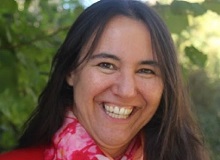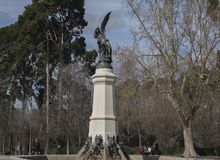


The time of crisis is inevitably also a time of opportunity for reconciliation, mediation and a new start.

Green parties gained much support in the recent local elections. To face the coming environmental crisis, “Christians will need a better grasp of the big picture of creation, fall and redemption”, says Rachel Calvert of A Rocha France.

Why did rebellion take place in heaven? Searching diligently, we can find answers in the Bible.

Covid-19 exposes the stark inequalities of our world as it wreaks havoc most on those for whom lockdown means no money and no food and who don’t have access to the basics of clean water and soap let alone a garden or park.
The mission of the field hospital set up two months ago by Samaritan’s Purse has ended. Italian Christians underline the “human dedication” of the over 100 specialists that helped fight the Covid-19.

“God has created an interdependent world within which humans have a responsibility to use the gifts and resources contained in the natural world wisely, cautiously and sustainably”.

The still-burning Amazon fires are only a part of an increasing planetary crisis, and raise important questions about an appropriate Christian response.

Kay Carter, Director of communications at Tyndale House, analyses how Christian scholars can engage with society to communicate the message of the gospel.

May this crisis make you ponder life and death, and what is truly valuable.

We need to learn to look for where God is at work quietly and behind the scenes. What might God bring out of all of this?

Prayer and pastoral care online, workshops, Instagram humor, are some of the responses to the first days of confinement.

Holiness means to consistently have clean behaviour, a clean life.

Two Iranian Christian women spent 259 days in prison for their faith. “God gave us an opportunity to share the gospel with people who needed to hear it”. They wrote a book about it.

Spanish psychiatrist and author, Pablo Martínez, analyses how individualism, existential emptiness and intolerance to suffering, have become some of the main charasteristics of our society.

Global Integration is a framework for engaging actively and responsibly with our world, locally through globally, for God’s glory.

We have reduced our central heating thermostat by 1 degree and will look to reduce it further in stages. Jumpers are lovely, we should wear them more when it’s colder.

Caring for God’s creation is one way in which we can express our love for God.

“Let’s begin to raise awareness, respond to this responsibility before God. Let’s plant churches, but also trees”, said Lowell Bliss co-director of the Christian Climate Observer Program.
“As Christians, it is up to us to become key actors in the climate crisis and lead a change”, says Juliana Morillo, member of the Christian Climate Observer Program.

The Spanish Ministry of Foreign Affairs invites the evangelical entity to the summit. Spanish evangelicals organise a forum on climate change, COP25 and the challenges for the church.

International director Chris Naylor and his wife Susanna lost their lives in a “horrific car accident” in South Africa, A Rocha said in a statement. Co-founder Miranda Harris also died.

According to the evangelical body, the “legislation is very indulgent due to certain interests”. In 2019, more fires than previous years have been reported.

Standing on the shoulders of the apostolic catholicity recovered by the Reformation, this is a promising way to reclaim and to live out the catholicity of the Church in our broken world.

Human activity is threatening biodiversity across all animal species.

Are we simply critiquing the environmental debates being played out in public, or is there a solid biblical agenda for engagement?

Las opiniones vertidas por nuestros colaboradores se realizan a nivel personal, pudiendo coincidir o no con la postura de la dirección de Protestante Digital.